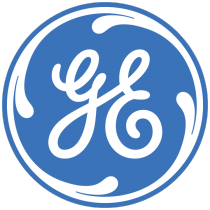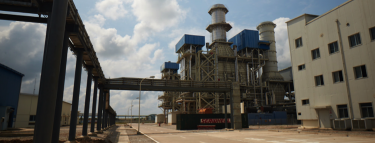
Categories
- Engines, Propulsion, Power Generation
- Military, Tactical, Logistic Support Vehicles & related equipment
- Raw Materials
- Services (R&D, training, engineering, consultancy, …)
GENERAL ELECTRIC has been operating in Nigeria for over 40 years, with businesses spanning a number of key sectors including aviation, power generation, oil and gas, healthcare, and transportation. In the past three years, there has been a renewed focus on the country with an eye on new service facilities and employment of more local talent to expand the company’s capabilities. GE’s portfolio of technology solutions is well aligned with Nigeria’s infrastructure needs, and is contributing to economic development and improved quality of life in the region.
Today, GE in Nigeria employs over 500 Nigerians and serves over 100 public and private sector customers from its offices in Lagos, Port Harcourt, Onne and Abuja.
In 2009, GE signed a Country-to-Company (C2C) agreement with the Federal Government of Nigeria to support the financing, design and building of infrastructure and capacity across key sectors of the economy, including rail, power and healthcare.
This agreement was recently renewed for another five years at the Head of States conference in Washington, DC. GE is committed to supporting Nigeria’s Vision 2020 goals in sectors and the C2C entails: Power Generation: Partnering with the Ministry of Power to support the development of 10GW of power over the next ten years. Healthcare: Partnering with the Ministry of Health to support the development of diagnostic centers in Nigeria. Transportation: Partnering with the Ministry of Transportation to modernize and expand Nigeria’s locomotive fleet.
GE spends $11 million annually to service facilities in Port-Harcourt and Onne and is investing $250 million in manufacturing and assembly facilities in Calabar, Cross River State by 2018. This $250 million investment is expected to create 2,300 jobs in the local economy. An additional $750 million will be allocated to sourcing local supplies and employee training in the surrounding communities as well as expanding GE’s service facility in Onne.
The new multi-modal manufacturing and services facility in Calabar will serve as a regional hub for GE Oil & Gas as well as other GE industrial businesses. The first of its kind site will include training facilities to enable knowledge transfer and career advancement opportunities for local talent.
In addition, GE is collaborating with Government Technical College, Calabar to develop academic programs to prepare students for the opportunity to work at this facility. Operating since 2002, this purpose-built facility is the first and only quayside facility of its caliber in Nigeria, has an exceptional safety record, and is a cornerstone in GE's commitment to the country's Oil and Gas industry. With continually expanding capabilities, the site provides complete assembly, testing and lifecycle service for subsea tree systems, subsea control modules, specialty connectors and pipe. It also includes a dedicated on-site training center and offers broad business development opportunities for local suppliers.
GE’s milestones in transportation include modernization and expansion of Nigeria’s locomotive fleet. GE is currently working with private sector participants to develop a locomotive assembly facility. That facility would modernize 30 old locomotive engines and assemble 170 new locomotives. The company is also acting on the order to supply locomotives to the Nigerian Rail Corporation (NRC) as part of the country’s fleet renewal program.
GE has partnered with a number of local power-generation companies in Nigeria to ramp up electrical output throughout the country. Working in partnership with Nigeria Delta Power Holding Company (NDPHC), GE has brought Calabar, Egbema and Gbarain power plants on line with a total 1350 MW. Additionally, a GE Turbine in Akwa – Ibom was rehabilitated and is now producing 120 MW.
In 2014, to help boost local energy and security, GE Power and Water unveiled its Distributed Power business for Africa in 2014 during an event in Lagos, Nigeria. Distributed Power is power generated at or near the point of use, on or off the grid, providing communities throughout the continent with more reliable, local energy supplies to promote greater economic development and security.
In Nigeria, distributed power technology is increasing in popularity for supporting local industrial production. The product portfolio features aeroderivative gas turbines, Jenbacher gas engines, and Waukesha gas engines ranging from 100 kW-115 MW. The business recently introduced the 2.6 MW 616 diesel engine, which has been designed for higher efficiency, more reliability and technology excellence.
GE has partnered with the Nigerian Federal Ministry of Health, the United States Agency for International Developing and others to create an innovative healthcare system to reduce preventable child-maternal deaths in Nigeria. GE has built specialized hospitals for women, and is committed to modernizing the healthcare system in Nigeria with up-to-date medical equipment, with emphasis on diagnostic tools. GE is dedicated to increasing global accessibility to quality healthcare, and is investing in sustainable forms of medical technology.
GE Aviation’s long-standing partnership with Arik Air has fast tracked its expansion into a leading African airline company. This has enabled Arik Air to contribute to Nigeria’s economic growth and cement its role as an enabler of regional and international travel connectivity between Africa and the world.
GE International Operations (Nig.) Limited
- Mansard Place, Plot 927/928, Bishop Aboyade Cole Street, Victoria Island , Lagos, Nigeria
- +234 146 071 01, +234 146 071 02
- www.ge.com/africa/company/nigeria




